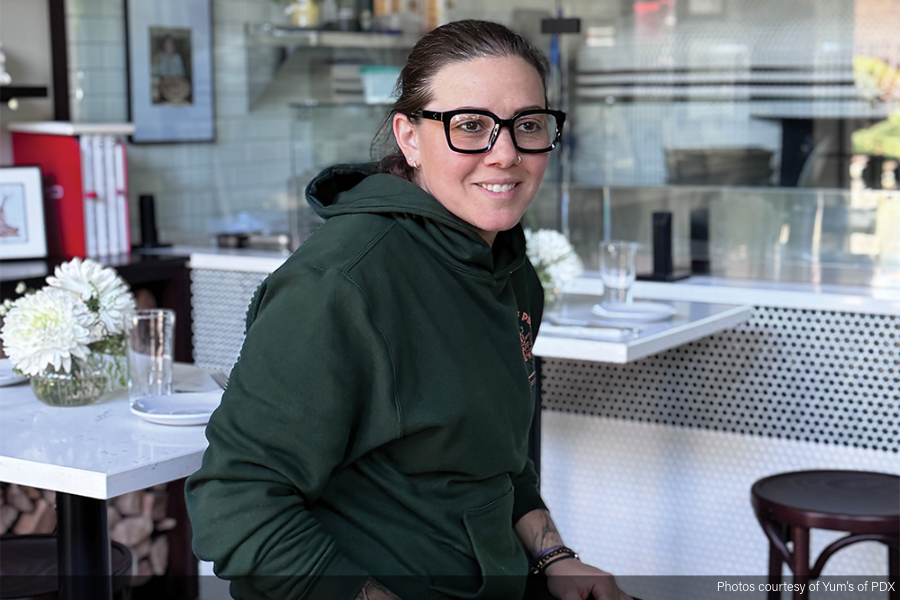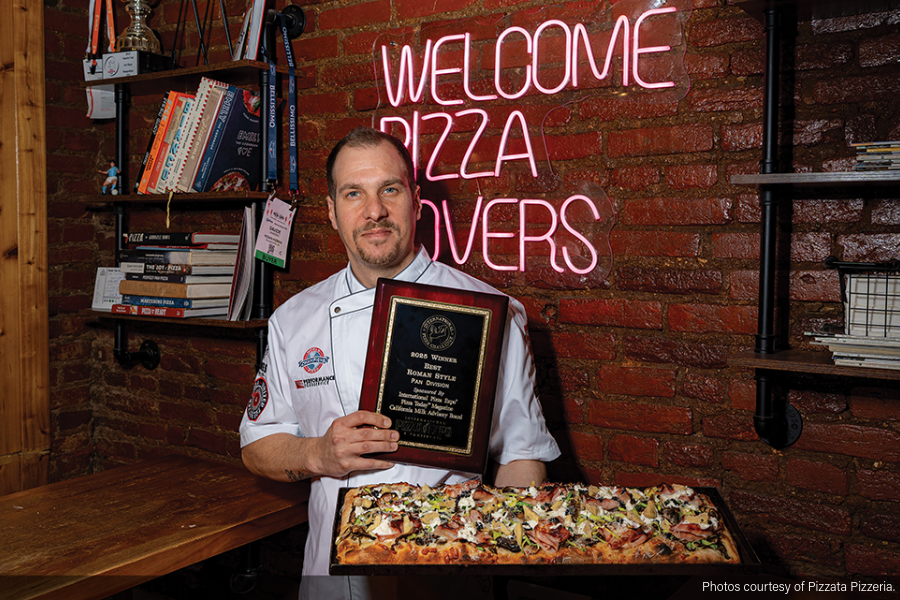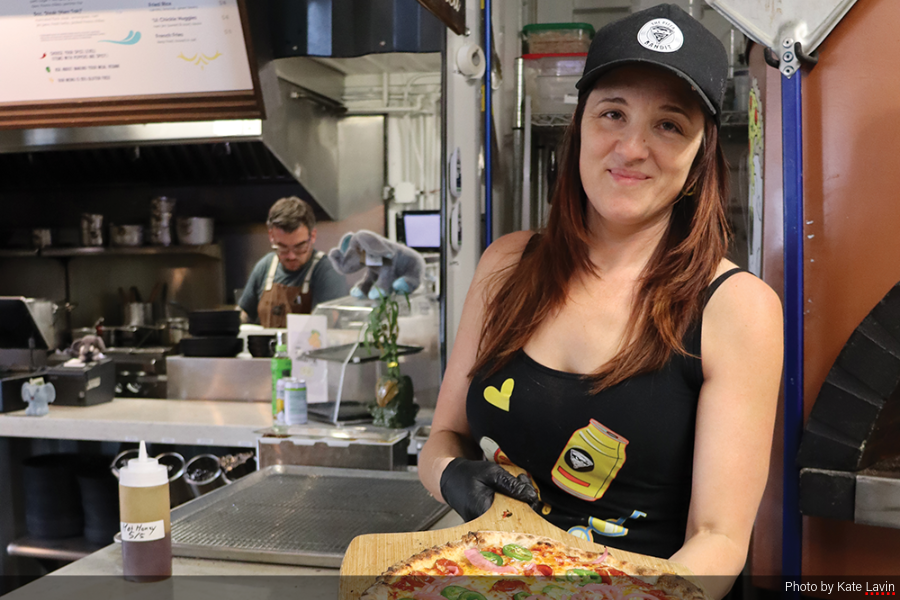Create an exceptional system for quality control
 You can’t afford to be reactive where quality control is concerned. Although it’s easy to let daily operations detract from proactive behavior, when the safety and satisfaction of your customers are affected, you can never be too vigilant. But how do you ensure your ingredients are high quality? What are some ways to ease the stress of inspector visits? And how do you empower employees to implement your quality control procedures?
You can’t afford to be reactive where quality control is concerned. Although it’s easy to let daily operations detract from proactive behavior, when the safety and satisfaction of your customers are affected, you can never be too vigilant. But how do you ensure your ingredients are high quality? What are some ways to ease the stress of inspector visits? And how do you empower employees to implement your quality control procedures?
We know the most successful pizzas owe it to their ingredients. “The more time and energy you put into sourcing high-quality ingredients, the more likely your food will be successful,” says Paul Bartlett, principal of Kitchen Solutions Food Service Consulting. After the effort of discovering the best vendors, it’s just as important to foster a healthy relationship with them and review each shipment they provide.
“Let your purveyors know you’re watching,” explains Terri Hannifin, co-owner of Home Slice Pizza in Austin, Texas. Our purveyors know we’ll call if there’s a difference in texture or quality to figure out why, even if we’re happy with the change.”
Once you’ve decided the shipment meets your expectations, respect those ingredients by keeping them as pristine as possible with suitable stock checks and storage. Scott Brooks, owner of Chicago-based River Run Consulting, thinks “there should be daily checks to make sure everything is cleaned and organized, cans aren’t dented or leaking and bags of flour aren’t spilling onto the floor.”
Even though there are local and national regulations, Home Slice Pizza holds themselves to rigorous stock checks multiple times per day plus twice daily inspections of ingredients on the line. By abiding by this detailed quality control system, they’re able to provide their customers with first-rate pizza.
If, despite your best storage efforts, ingredients do need to be tossed, Bartlett offers some advice. “If you have out-of-date products, it’s a sign of poor operation,” he says. “You want to have enough inventory for three to four days.” This may mean simply adjusting your ordering strategy to fit your restaurant’s ever-changing needs. Additionally, says Phil Korshak, senior kitchen manager of Home Slice Pizza: “If your dedication is to freshness and quality, then the idea of something getting past an out date isn’t going to be your real problem. It doesn’t matter if my out date is three days before the city’s date, it’s simply done.”
As we all know, food safety is integral to a top-notch quality control program. “Food safety doesn’t happen, it’s planned,” says Brooks, and when your plan exceeds the typical regulations, you have fewer issues from operations on through inspections. Avoid common shortcuts like relying on your oven as the final food safety check. “Don’t assume because you have a pizza oven that food safety is taken care of,” Brooks adds.
But when your local health official does come knocking, treat them as an ally, not an adversary. “Always subscribe to the idea of befriending your local health inspector; no matter how challenging it can be,” says Hannifin. Changing your mindset from dreading the inspection to believing it protects your business, brand and customer, is pivotal for success. Plus, it’s a chance to educate yourself via a trusted colleague. “There hasn’t been one inspection where I haven’t learned something,” says Korshak, “Any opportunity to learn is a good opportunity.”
However, if a violation occurs, Gary Ades, president of G&L Consulting Groups, says: “Most public health officials are very good. And they become helpful to you if you have a situation, if you’ve already established a good relationship with them.”
The ultimate way towards impeccable quality control is to lead by example. “Owners or managers should exhibit the same things they expect from their employees,” Brooks says. “If they don’t show these behaviors, their employees will think these behaviors are less important.”
You also want to establish your restaurant’s organization so it flows from loading dock to service area making employee success a breeze. “The simpler you keep things, the easier quality control will be. The less ingredients you have, the less risk you have, and the easier it is to keep your staff and customers safe,” says Hannifin.
Empowering your staff through consistent training is another way to nurture first-class quality control. “Create an environment where your employees want to work and they feel good about what they’re doing, and they’ll produce good food,” says Bartlett.
Ades thinks that when training employees “you need to educate and tell them why. Giving staff members a bunch of rules is hard to remember, but they can remember why.”
For Home Slice Pizza, it’s all about altering employee mentality. “The first day of training is tasting food. It begins with the point of respect. I know you’ve done this before, but this is how we do it here,” explains Korshak. They participate in meticulous yet enjoyable internal daily training, and have rules placed at eye-level to make staff expectations conspicuous. “When you ask more than what’s the norm, that’s the greatest respect you can show. What you’re saying is you believe in them,” says Korshak.
Emphasis on Quality
- Never cut corners. “We’re so particular about the ingredients we use and where they come from. We do keep them simple, but we continue to taste throughout,” says Terri Hannifin, co-owner of Home Slice Pizza.
- Relationship status. “There is a tendency in the business to become so busy that the purveyor relationship goes by the wayside. The connection you have with the food should equal the connection you have with the people who make and provide that food,” explains Phil Korshak, senior kitchen manager of Home Slice Pizza.
- A-count-ing. “Every restaurant should do a full inventory daily. If you extend that time, you’ll run into trouble without knowing it,” says Paul Bartlett, principal of Kitchen Solutions Food Service Consulting.
- Safety net. “Training needs to be focused on food safety and quality. If the training program doesn’t include food safety and quality, then you’re missing crucial information,” Scott Brooks, owner of River Run Consulting.
- Why not. “If you tell your staff why then they have an understanding, and don’t have to remember all these rules,” says Gary Ades, president of G&L Consulting Groups.
Mandy Ellis is an Austin-based freelance writer who covers food, health and travel trends.







